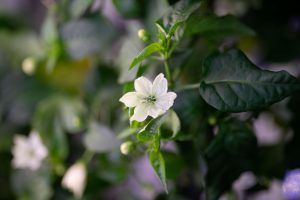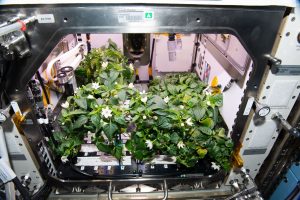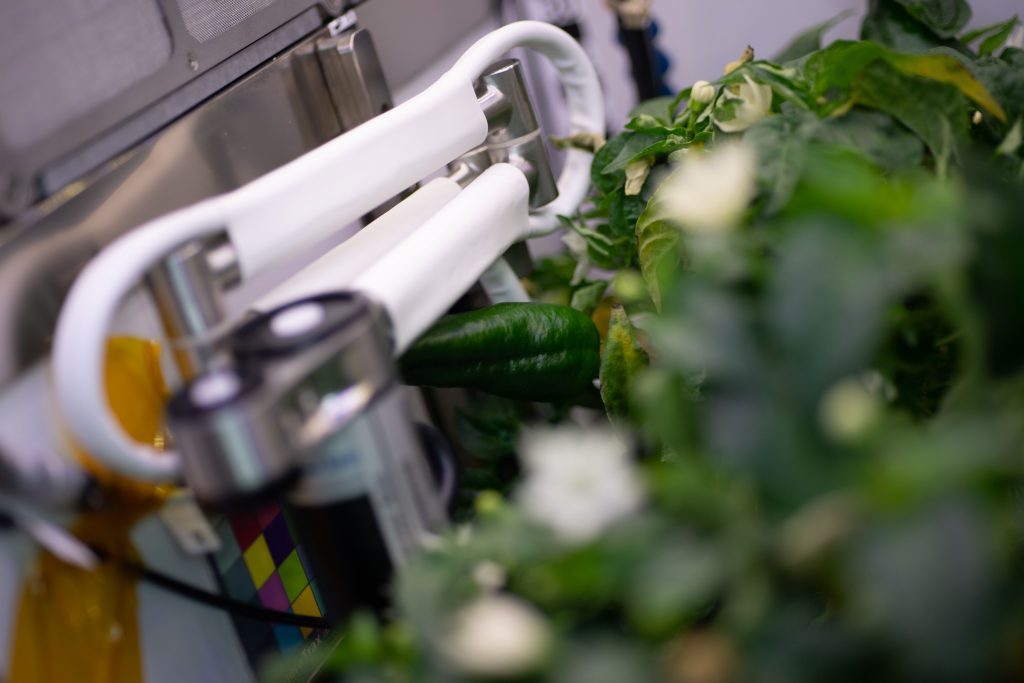Recently, the four chile pepper plants growing aboard the International Space Station in the Advanced Plant Habitat (APH) bore fruit – several peppers, in fact.


The peppers developed from flowers that bloomed over the past few weeks. Peppers are self-pollinating, and once pollination occurred, peppers started forming 24 to 48 hours later; however, not all pollinated flowers developed into peppers.
A unique feature of the APH is that it can be controlled remotely. To pollinate the flowers in orbit, the team at NASA’s Kennedy Space Center instructed APH to run its fans at variable rates to create a gentle breeze in microgravity to agitate the flowers and encourage the transfer of pollen. The space station crew also provided assistance by hand pollinating some of the flowers.


Studies of fruit development in microgravity are limited, and NASA researchers have noted lower fruit development versus ground observations in this experiment for reasons that are not fully understood at this point. Overcoming the challenges of growing fruit in microgravity is important for long-duration missions during which crew members will need good sources of Vitamin C – such as peppers – to supplement their diets.
The average length for this type of pepper is just over three inches in ground tests. Hatch chile peppers are a mild heat pepper that starts out as green and will ripen to red over time, but it’s unknown what effect microgravity will have on the length to which they grow and their potency.
Astronauts will perform two harvests this year – one at 100 days in late October, and one at 120 days in early November. At those times, astronauts will sanitize the peppers, eat part of their harvests, and return the rest to Earth for analysis.















